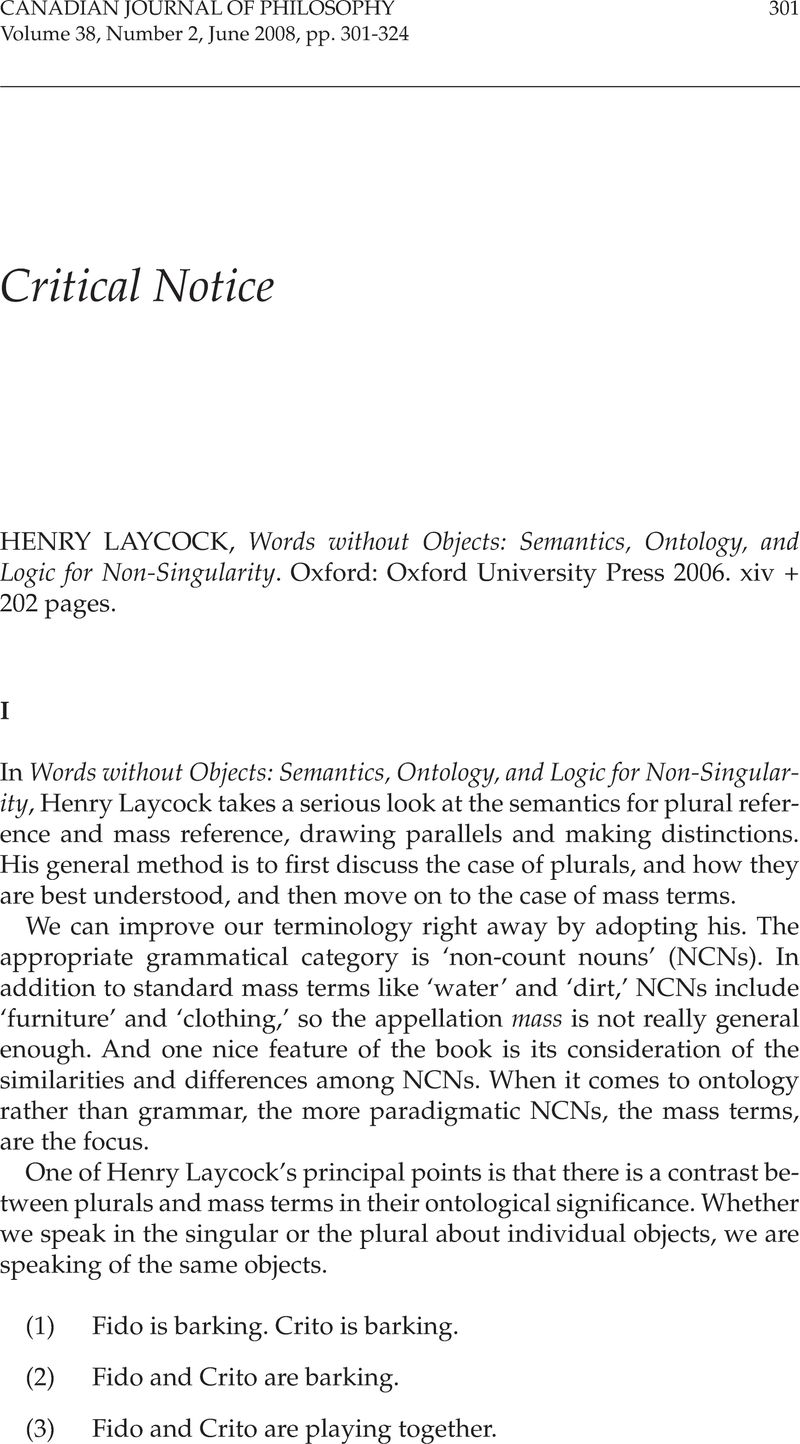Crossref Citations
This article has been cited by the following publications. This list is generated based on data provided by Crossref.
McKay, Thomas J.
2015.
Stuff and coincidence.
Philosophical Studies,
Vol. 172,
Issue. 11,
p.
3081.
Ordóñez Angulo, Emmanuel
2017.
What Do We See When We See Total Darkness?.
European Journal of Philosophy,
Vol. 25,
Issue. 4,
p.
1039.
Lombardi, Olimpia
2023.
Non-Reflexive Logics, Non-Individuals, and the Philosophy of Quantum Mechanics.
Vol. 476,
Issue. ,
p.
45.



